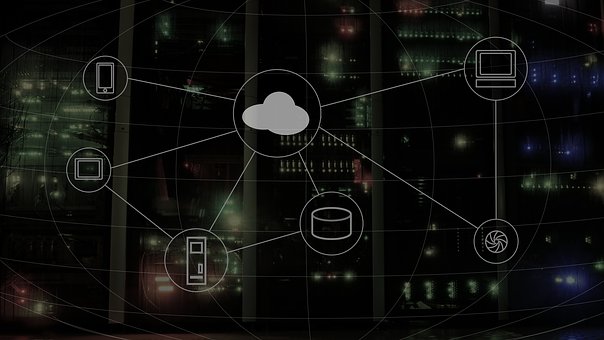
We often hear the advantages of the cloud on the wind. It can hold much more, it’s much more secure, and takes less energy and space. And that’s all true when you compare it to our traditional ways of storing data. Whether you still have a cabinet full of physical papers or you’re constantly met with a reminder that your PC’s memory is about to run out, the cloud comes out as a perfect alternative.
But is it perfect? Is it as secure as we’ve been led to believe? “Relatively secure” doesn’t mean watertight, unfortunately, and businesses and even private cloud users need to be aware of the problems with security in the cloud to ensure that their data, and the data of their customers, clients, etc. is kept out of the wrong hands.
Take a look at our guide to the cloud and its security risks to ensure that you are protected and prepared for a rainy day coming from the cloud.
What is the cloud?
A cloud ecosystem is a network of components integrated to provide cloud services. Hardware and software, cloud developers, consultants, integrators, employees, and customers each contribute to this global system. Only each player in the system can do many things. But overall, they are a system that offers incredible power and benefits.
For example, utilising cloud computing can help businesses offer competitive prices, accelerate provisioning, and streamline services, among other benefits. Working as a larger network advances businesses toward better data analytics and collaboration, encourages innovation, and propels businesses toward exponential growth.
Hence, every service, application, and person engaged in active operation within a specific public cloud infrastructure is a part of the cloud ecosystem. When organizations like Salesforce permit internal access to AWS (Amazon Web Services) public cloud while simultaneously granting access to their end users, ecosystems start to converge and become more complex. In the end, this convergence of usage makes the ecosystem more dynamic and encourages the development of cloud computing.
However, it is now more crucial than ever for businesses to adopt security-first mentalities due to the evolution of threats and the emergence of sophisticated new attacks. The most common cloud computing security risk faced by many companies and organisations is the lack of cybersecurity measures and policies during the cloud computing process. These major cloud security issues range from issues affecting individual services (misconfiguration issues) to entire clouds (DDoS attacks).
Denial of Service (DoS/DDoS)
As organisations increasingly turn to cloud services for their day-to-day operations, the risk of denial-of-service attacks has become a serious threat to the security of the entire cloud computing environment.
A successful denial-of-service (DoS) or distributed denial-of-service (DDoS) attack can bring down various cloud services and resources, resulting in disruption of cloud availability, performance, and service level agreement between the cloud service provider and its customer.
Misconfiguration Issues
This is one of the main security risks of cloud infrastructure. One misconfigured component can create a domino effect that has a big impact on the security of the cloud and negatively affect the security of other assets. Below are some of the components that cause misconfiguration security issues in cloud computing.
- Unencrypted AMI
- Unlimited outgoing access
- Privileged access poses a security risk in cloud computing environments.
- an unencrypted token or key
Data Sharing
The hassle of storing data and files and then sharing them with people or groups became easier to do when cloud computing became practical. But it also brought with it risks clouding computing's integrity and confidentiality.
In a cloud ecosystem, users can share files and data externally via email or a publicly available link. Hence, multiple security risks on cloud computing assets can result from this feature's ability to access files shared with the public via URL. Any attacker who obtains the URL through a cyberattack or security breach has access to shared data and can compromise its integrity and confidentiality.
Supply Chain Vulnerabilities
Supply chain vulnerabilities are problems that can have a lasting effect due to leading to data loss. However, this is solely the responsibility of the CSP, but it poses a high cloud security risk to the entire ecosystem. Today, more and more companies are choosing SaaS and PaaS services, and a small number of companies are choosing IaaS services. It has become a source of attraction for sophisticated threat actors. Suppose an attacker manages to compromise a CSP vulnerability. In this case, they can infiltrate the entire CSP customer's cloud computing infrastructure and gain access to sensitive data to use or hijack ransomware.
Account Hijacking
This is one of the most important and serious cloud computing security risks. Stolen credentials from a hijacked cloud account can have a variety of consequences, from creating unauthorised access to impersonating someone else. Account hacking can also lead to data breaches, fraudulent transaction activity or compromise of customer integrity, and if confidential information or personal data is leaked, the owner can then pay large fines depending on the law.
Conclusion
Ensuring that the data you are putting into the cloud is secure starts with being aware, and without that, businesses could find themselves on the receiving end of a fine at best, and a public outcry at worst.